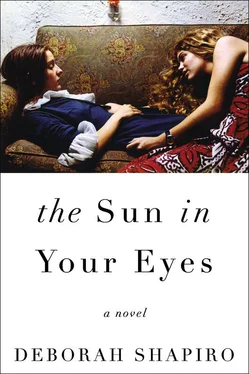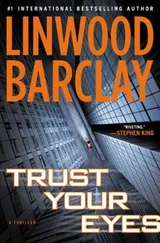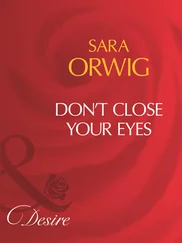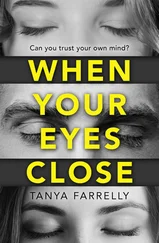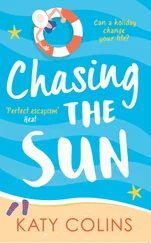I wanted to be asked to meet Patti Driggs more than I actually wanted to meet her and I was glad to have an out: it had become something of a tradition that Lee and I would go to my parents’ house for the holiday. I had assumed she would break the custom this year, with any number of exciting, possibly Parisian plans to choose from, but her only other offer involved spending it with her mother and Roy, Linda’s on-again off-again boyfriend, at Roy’s ranch.
“Is Ben coming?” she asked. I equivocated, saying something about him probably needing to stay in the city for work.
Ben Driggs Stern dumped me just before Christmas, and by that point, after what happened with that Thanksgiving, Lee and I weren’t speaking. The real breakup.
Now here we were, sitting at an old picnic table on the back porch of Rodgers’ house.
“ Andy Andy?” asked Rodgers.
“Andy Andy,” I said.
“Wow. Good for you guys. Cheers.” He raised his beer and his twinkling eyes. I was having a hard time not meeting those eyes across the table.
“And what about you?”
“I’m single. I’m single and lovin’ it. I just love the fuck out of being single. Does that make me, like, a Charlotte or whoever?”
“I think it makes you a Samantha,” I said.
“It makes your references about ten years out of date,” said Lee.
“Yeah, that’s happening to me more and more. I’ve decided to give in to it. I’m tired of trying to stay current. It’s too much work for too little payoff. I’m losing my edge, it’s fine.”
“You’re losing your edge?” asked Lee.
“This critic said he couldn’t figure out whether my last show was ‘a very twenty-first-century struggle against the emptiness of being a man or simply underwhelming.’ And this woman I’m kind of seeing told me my work can get pseudo-plebian.”
“I thought you were loving the fuck out of being single,” said Lee. “This woman sounds like your girlfriend.”
“I don’t really consider people who use words like ‘pseudo-plebian’ to be girlfriend material.”
“She probably doesn’t consider people whose work can be pseudo-plebian to be boyfriend material.”
“Yeah, it’s doomed. Sometimes I’m fine with that. Other times I miss, you know, things like hope.” He smiled extravagantly and I was glad to see he hadn’t fixed his teeth even though he could afford to now. I had once gone to see an exhibition at the Whitney mostly because it included an installation of his: beautiful tunnels of colored light he had encased in large Styrofoam structures fabricated, seamlessly, from dollar store coolers. The box of curatorial text on the wall spoke of Marxism, religion, a debt to and critique of Minimalism, and though I could make myself see all of that in the piece, what moved me was the very materiality of it, that he had brought it out of his head and into existence. It was titled Fourth of July. It reminded me of that party on the roof, the fireworks in the night sky, his hand up my skirt.
Rodgers seemed to be proof that vision plus talent plus drive was still a viable route to success, pseudo-plebian or not. But you had to have the right amounts of all three bubbling away in order for them to react; too little of one and not enough of another and you merely fizzled. Or, I suppose, you got a job writing dialogue for a past-its-prime soap opera.
When the subject came up, I didn’t particularly want to tell Rodgers what I did for a living, what I had done with my life. I was supposed to have done better. Around the time I decided to drop out of grad school, my mother came to visit me in New York.
“But you’ve worked so hard,” she said.
“But I don’t want to be an academic.”
“What do you think you’re going to do, then?”
“I’m not sure. Do I have to always have everything figured out?”
The look on her face said Yes. You’re not Lee. You can’t live like her. That friendship has spoiled you. It’s made you want things you’ll never have.
“No,” she said. “You don’t. I just don’t want to see you throw this away and then regret it.”
She was relieved though not very impressed when I started writing for THATH. I had defaulted on some bright promise but the shame of that was residual.
Really, it wasn’t shame I felt at all. In college I once tagged along with Lee to see a showcase of student films. The most engaging one was composed of long, still takes of naked thighs, skyscrapers, an industrial park, a family at a picnic table, and what looked like a piece of chicken, all set to “My Heart Will Go On.” People laughed and I laughed too, because I knew it was supposed to be some kind of commentary on sexuality or sentimentality or consumerism or agribusiness or copyright infringement or all of the above. I could try to make the intellectual case for the song’s use, but secretly I just enjoyed hearing it. I used to try to make the intellectual case for the relevance of soaps. I never admitted that I just enjoyed hearing the song. Yes, THATH strained for highs of the biblical and Shakespearean variety and sank to lunatic lows. But you could argue that soaps were feminist in their focus on the day-to-day lives of women. You could argue that soaps were one of the few mainstream cultural productions in America that dealt with class. With a canvas of thirty characters, THATH had three families at its core: the upper-crust Sterlings, the middle- to upper-middle-class Howards, and the blue-collar Doughertys. You could make all the arguments you wanted and it wouldn’t matter. The appeal of soaps was emotional. You could spend years with these characters, typically played by the same actors. They could even die and come back. All those shared memories, all that youth, all that time.
I was lucky to have my job and the truth is, I liked it. I needed it. I didn’t want to lose it. I loved Mill River and its swapped babies, its crazy old ladies working on strengthening their cores, its hookers and Judaism. I loved walking down the hall and passing soap legend Darcy Betts, who’d been with the show since its inception, originating the role of Elena Sterling Rappoport. No stranger to cosmetic work, she had refused Botox in order to preserve her unparalleled ability to meaningfully arch an eyebrow. A right brow tick for scorn, two full brow ticks for skepticism, three for delight, a subtle yet unmistakable right half tick for desire. The single full arch followed by a left suspended tick, which she often gave me, I interpreted as solidarity. She would call me “Vivian, darling!” and I would ask her how she was doing and she would say “I’m keeping it light, keeping it lively!”—her mantra, inspired by her favorite brand of fat-free cottage cheese.
I didn’t want to talk to Rodgers about my job because I didn’t want to have to explain or champion my odd pride in it. But he asked, so I answered. He couldn’t believe it. His mother watched the show religiously. Who was that guy, that guy who’d been on it for years, the guy with the cheekbones? Rick Howard? Yes, Rick Howard!
Under Frank’s reign, Dr. Rick Howard, world-renowned neurosurgeon, became addicted to Tumestrex, a Viagra-like drug he’d developed, fathered a child out of wedlock, and then removed all childbearing memories from his mistress’s brain. He eventually redeemed himself by standing up to a cabal of real estate developers angling to demolish Mill River University Hospital.
“Someone made a YouTube montage of his cheekbones’ greatest moments,” I said. Now that I thought about it, that montage had been set to Jesse’s song “Whatever You Want,” which had experienced a resurgent popularity after it was used in a car commercial.
We had to watch it just then, of course, and up came an assortment of Jesse Parrish — related clips. Lee had seen most of them. Jesse as a witty rock star on the Dick Cavett Show; once-rare footage of Jesse, incoherent, and Linda, totally loopy, interviewed on British TV; early publicity shots and later stills as a slideshow backdrop to his songs. A picture of Jesse and four-year-old Lee: Jesse leading her to the edge of a pool at the home of a now long-forgotten record executive. Her small fingers pressed in his large hand. She looks into the water in the serious way children do while Jesse has his head turned to catch something coming from a figure beyond the frame, a portrait, simultaneously, of parental care and negligence. Lee remembered she had been chewing spearmint gum the same light green as her swimsuit. Was it strange that she was allowed to chew gum at that age? By a pool, when she didn’t yet know how to swim? She didn’t remember where the gum had come from. She didn’t remember the before or the after to that moment.
Читать дальше
